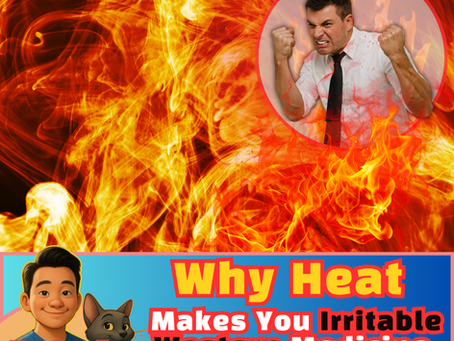top of page
Acupuncture | No Fault Insurance | Massage Therapy
Search


Cold Work Environments and Poor Blood Circulation:
Long-term work in cold environments can disrupt blood circulation, irritate nerves, and cause chronic pain. This article explains how cold exposure affects the body from both Western and Traditional Chinese Medicine perspectives—and how acupuncture can restore balance and circulation.
caulocare
Dec 12, 20254 min read


Workplace Shoulder, Neck & Knee Injuries: Acupuncture & Rehab for Faster Return to Work
Work shouldn’t cause pain. Learn how acupuncture and rehab support recovery for common workplace injuries like shoulder, neck, and knee pain — with full coverage through Work Comp & No-Fault insurance at Caulo Care in Queens.
caulocare
Dec 7, 20253 min read


NYC Stress Syndrome | Acupuncture for Stress Relief in Forest Hills | Caulo Care Acupuncture
Living in NYC can push stress to the next level. Discover why New Yorkers experience unique physical and emotional burnout — and how acupuncture can reset your health naturally.
caulocare
Dec 5, 20254 min read


Understanding Chronic Back Pain: Causes and Integrative Treatments
Chronic back pain is more than just physical strain. Learn how Dr. Caulo’s integrative approach — blending acupuncture, posture care, and holistic therapy — helps Forest Hills residents heal naturally and stay active.
caulocare
Nov 8, 20254 min read


“Work Comp Acupuncture for Restaurant & Hotel Workers Pain Relief in Forest Hills, NY”
Long hours and repetitive work can cause chronic neck and hand pain in restaurant and hotel staff. Discover how acupuncture at Caulo Care helps Queens workers heal naturally under Workers’ Compensation.
caulocare
Oct 29, 20252 min read


Why Leg Swelling Is Like a Traffic Jam in Your Body
"Leg swelling may come from heart, kidney, or posture issues—or from Spleen and Kidney Qi imbalance in TCM. At Caulo Care Acupuncture, we integrate modern and traditional treatments to reduce swelling and restore circulation."
caulocare
Aug 30, 20253 min read


Why Breathing the Right Way Matters: A Medical and TCM Perspective
“Breathing the right way is more than survival—it’s medicine for the body and mind. Discover how proper breathing, posture correction, acupuncture, and TCM herbs improve lung health, reduce stress, and restore balance at Caulo Care Acupuncture.”
caulocare
Aug 29, 20253 min read


Why Do Muscle Cramps (Charley Horses) Happen?
“Muscle cramps are more than a nuisance—they reveal deeper imbalances in circulation, posture, or organ health. At Caulo Care Acupuncture in Forest Hills, we blend Western medicine and TCM to prevent and treat painful spasms.”
caulocare
Aug 28, 20253 min read


“Why Heat Makes You Irritable: Western Medicine and TCM Solutions”
“Heat affects not only the body but also the mind—causing irritability, anger, and restlessness. Discover Western medicine and TCM solutions, including acupuncture and herbal care, to stay cool and balanced in New York’s hot seasons.”
caulocare
Aug 22, 20253 min read


Acupuncture for Chemotherapy-Induced Numbness and Tingling (Peripheral Neuropathy)
“Chemotherapy-induced peripheral neuropathy can cause numbness, tingling, and pain in hands and feet. At Caulo Care in Forest Hills, we offer acupuncture and integrative care to restore comfort, improve circulation, and support cancer recovery.”
caulocare
Aug 19, 20253 min read


Why Are My Hands Numb at Night?
Hand numbness at night is often linked to carpal tunnel syndrome, posture, or nerve compression. At Caulo Care Forest Hills, we combine Western medicine insights with acupuncture and TCM to restore circulation, reduce pain, and prevent long-term wrist damage.
caulocare
Aug 18, 20253 min read


Why Do Arms and Legs Feel Weak?
“💪 Weak arms and legs aren’t just fatigue—they may reveal deeper imbalances in your body. Discover the causes and how both Western...
caulocare
Aug 17, 20253 min read


Why Medicine is Important for High Blood Pressure (HBP)
"High blood pressure is a silent threat that can damage your heart, brain, and kidneys without warning. Dr. Phumlarp Caulo explains why medicine is important for HBP, how Western medicine and TCM address the causes, and practical steps to protect your health — from posture correction to herbal remedies."
caulocare
Aug 15, 20253 min read


Why Are My Fingertips Numb? Causes, Treatment, and Prevention from Both Modern and Traditional Chinese Medicine
"Fingertip numbness can be a warning sign of nerve compression, circulation problems, or Qi stagnation. At Caulo Care Community Acupuncture, we combine modern diagnostics with Traditional Chinese Medicine to restore sensation, relieve discomfort, and improve hand health."
caulocare
Aug 13, 20253 min read


Neck Pain After a Car Accident: Just a Minor Sprain… or a Hidden Danger?
"Neck pain after a car accident isn’t always a simple sprain. Learn how whiplash and cervical strain develop, why symptoms can appear days later, and how CauloCare Acupuncture in Forest Hills NY provides No-Fault covered treatment to relieve pain, restore mobility, and prevent long-term damage."
caulocare
Aug 11, 20253 min read


“Why Your Fatigue May Actually Be Burnout — And How to Heal Naturally"
Burnout Syndrome is more than just feeling tired — it’s a deep, chronic state of physical and emotional exhaustion caused by prolonged stress. At Caulo Care Community Acupuncture in Forest Hills, NY, Dr. Phumlarp Caulo combines Western medicine, Traditional Chinese Medicine, acupuncture, and herbal remedies to help patients recover energy, restore balance, and prevent relapse naturally.
caulocare
Aug 11, 20254 min read


Bad Breath and Gut Health: What Your Body Is Trying to Tell You
Bad breath isn’t always caused by poor brushing.
In this article, Dr. Phumlarp Caulo reveals 5 hidden causes of bad breath—ranging from tongue coating and dry mouth to digestive imbalances and internal heat. Learn how both modern science and Traditional Chinese Medicine (TCM) offer natural, lasting solutions to help you breathe with confidence again.
caulocare
Jul 15, 20254 min read


Neck Pain Radiating to Arm: Causes, Symptoms, and Treatment Explained
“Neck pain that radiates to the shoulder, arm, or hand isn't just a muscle ache — it's a neurological warning sign.”This type of pain may indicate a condition known as cervical radiculopathy, where a spinal nerve in the neck is compressed or irritated, also commonly referred to as a pinched nerve in the neck.
caulocare
Jul 1, 20254 min read


"Falling Asleep in the Car? Your Body Might Be Warning You About Something Serious"
Many people have experienced unintentionally dozing off during a car ride—whether as a silent passenger or even, alarmingly, as the driver who must open windows or blast music to stay awake. But falling asleep in the car isn’t merely a sign of fatigue. Rather, it may reflect a complex interplay of biological, psychological, and energetic systems within the body.
caulocare
Jun 1, 20254 min read


Understanding the Interpretation of Cold Sensation in the Stomach: A How-To Guide in Traditional Chinese Medicine and Western Medicine
Understanding the Interpretation of Cold Sensation in the Stomach: A How-To Guide in Traditional Chinese Medicine and Western Medicine
caulocare
Apr 8, 20256 min read
bottom of page



